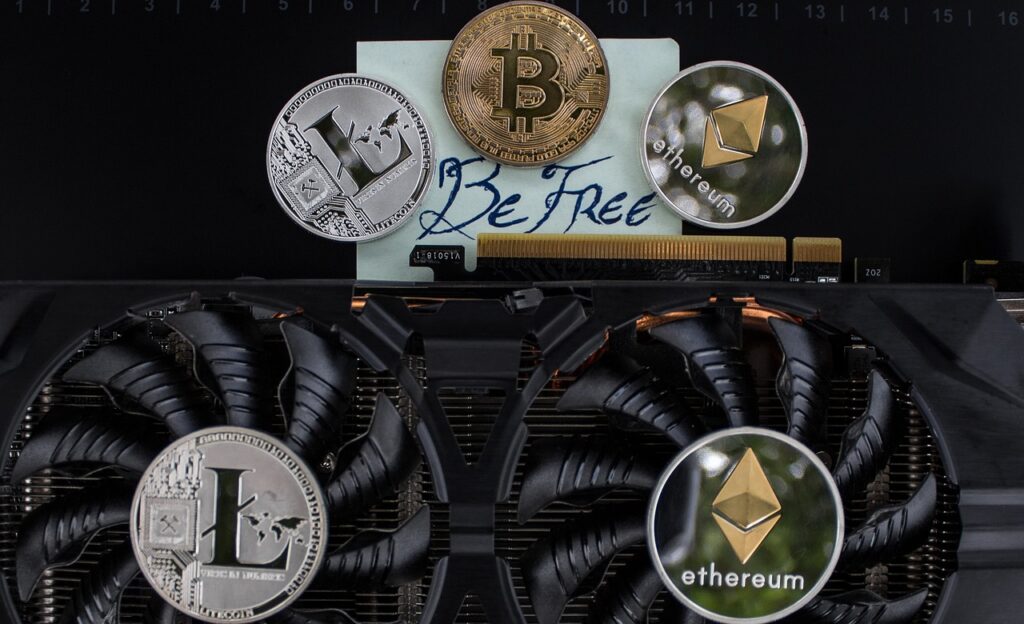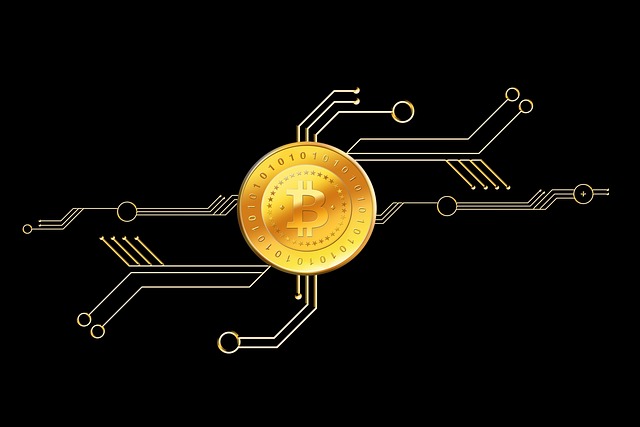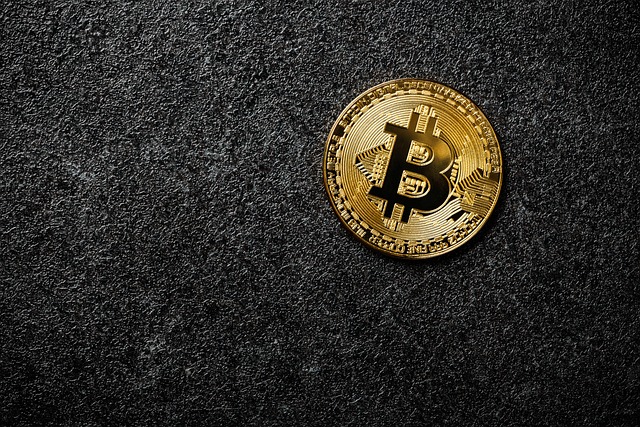Decentralized Finance: Weighing the Pros and Cons
Decentralized Finance: Weighing the Pros and Cons

Understanding the concept of decentralized finance
Decentralized finance, often referred to as DeFi, is an innovative concept that revolutionizes traditional financial systems. Unlike traditional financial systems that rely heavily on intermediaries such as banks and financial institutions, DeFi operates on a trustless and transparent network of smart contracts. These smart contracts are built on blockchain technology, enabling individuals to directly engage in various financial activities without the need for intermediaries.
One of the key characteristics of decentralized finance is its open and permissionless nature. This means that anyone with an internet connection can participate in DeFi protocols and access its services. By removing the barriers to entry that exist in traditional finance, DeFi promotes financial inclusivity and accessibility for individuals who may have been previously underserved by traditional systems. Moreover, the elimination of intermediaries reduces the costs associated with financial transactions, enabling users to save money and have more control over their funds.
Exploring the advantages of decentralized finance
Decentralized finance, often referred to as DeFi, offers a multitude of advantages that are captivating the attention of investors and financial enthusiasts alike. One of the most significant benefits of decentralized finance is the elimination of intermediaries. Traditional financial systems rely heavily on intermediaries such as banks, brokers, and clearinghouses. These intermediaries not only introduce additional costs but also act as gatekeepers, determining who can access financial services. With decentralized finance, this barrier is overcome as individuals have direct control over their funds, enabling peer-to-peer transactions without the need for intermediaries. This not only reduces costs but also promotes financial inclusivity and accessibility, allowing individuals who may have been excluded from traditional financial services to participate in a secure, transparent, and efficient manner.
Moreover, decentralized finance facilitates a higher level of transparency and user control. The use of blockchain technology ensures that all transactions are recorded on a public ledger, accessible to all participants. This transparency not only prevents fraudulent activities but also fosters trust, as users can verify and track their transactions independently. Furthermore, individuals have total control over their funds, eliminating the need to rely on a centralized authority to manage their assets. This control extends to the ability to make investments, borrow, lend, and manage portfolios directly, empowering individuals to take charge of their financial decisions. With decentralized finance, power and control are shifted from centralized entities to users, promoting autonomy and self-governance in financial matters.
• Elimination of intermediaries: Decentralized finance allows for direct control over funds, eliminating the need for banks, brokers, and clearinghouses.
• Reduced costs: By cutting out intermediaries, decentralized finance reduces transaction fees and other additional costs.
• Financial inclusivity and accessibility: With decentralized finance, individuals who were previously excluded from traditional financial services can now participate in a secure and efficient manner.
• Transparency: The use of blockchain technology ensures that all transactions are recorded on a public ledger, promoting transparency and preventing fraudulent activities.
• User control: Individuals have total control over their funds and can make investments, borrow, lend, and manage portfolios directly without relying on centralized authorities. This promotes autonomy in financial decisions.
Evaluating the disadvantages of decentralized finance
Decentralized finance, or DeFi, has gained significant popularity in recent years, offering users a range of benefits and opportunities. However, it is essential to acknowledge the potential disadvantages and challenges associated with this emerging financial system.
One major concern with decentralized finance is the inherent risk involved in its operations. Unlike traditional financial institutions that are regulated and overseen by central authorities, DeFi platforms operate on blockchain technology, which can be susceptible to hacking and malicious activities. The absence of a centralized authority also means that there is no recourse for users if something goes wrong, such as theft or loss of funds. This lack of accountability and security measures may deter some individuals from fully embracing decentralized finance.
Another disadvantage of DeFi is the complexity and technical expertise required to navigate the system effectively. Unlike traditional banking, which provides user-friendly interfaces and customer support, DeFi platforms often require individuals to possess a certain level of technical knowledge to understand and utilize the various protocols and tools. This barrier to entry may restrict the adoption of decentralized finance among less technologically inclined individuals and limit its potential for widespread usage.
While decentralized finance offers numerous advantages, it is crucial to recognize and address these disadvantages to ensure its long-term sustainability and success. Through further research, innovation, and collaboration, the potential of decentralized finance can be harnessed while mitigating the associated risks and challenges.
The potential impact of decentralized finance on traditional financial systems
Decentralized finance has the potential to revolutionize traditional financial systems in numerous ways. One of the most significant impacts is the elimination of intermediaries, such as banks and financial institutions, which have long held a dominant position in the industry.

Additionally, decentralized finance has the potential to democratize access to financial services, particularly for the unbanked and underbanked populations. Traditional financial systems often have stringent requirements, such as minimum deposits, credit history checks, and physical presence, which exclude many individuals from accessing necessary financial services. With decentralized finance, anyone with an internet connection can participate, regardless of their location or financial background. This inclusivity enables people to save, invest, and borrow funds more easily, empowering them to build wealth and improve their economic well-being. Moreover, decentralized finance opens up opportunities for peer-to-peer lending and crowdfunding, enabling individuals to support each other and access capital for their entrepreneurial endeavors without relying on traditional institutions.
Examining the risks and security concerns associated with decentralized finance
When it comes to decentralized finance, there are certain risks and security concerns that need to be taken into account. One of the main concerns is the potential for hacks and security breaches. Since decentralized finance relies on blockchain technology, which is immutable and transparent, any vulnerabilities in the code or smart contracts can be exploited by hackers. This can result in the loss of funds or personal information, which can be devastating for individuals and businesses alike.
Another risk associated with decentralized finance is the lack of regulation and oversight. Unlike traditional financial systems, which are governed by regulatory bodies and have strict compliance requirements, decentralized finance operates in a relatively unregulated space. While this allows for greater freedom and innovation, it also increases the likelihood of scams and fraudulent activities. Without proper regulation, it can be difficult to hold bad actors accountable and protect users from potential scams or fraudulent projects.
Overall, while decentralized finance offers numerous advantages and opportunities, it is important to be aware of the risks and security concerns. It is crucial for individuals and businesses to exercise caution, conduct thorough research, and take necessary precautions to protect their assets and information when engaging in decentralized finance activities. With proper education, awareness, and security measures in place, the potential benefits of decentralized finance can be maximized while minimizing the associated risks.
How decentralized finance promotes financial inclusivity and accessibility
Decentralized finance, often referred to as DeFi, plays a crucial role in promoting financial inclusivity and accessibility. By its very nature, DeFi eliminates the need for intermediaries, such as banks or traditional financial institutions, to facilitate transactions and provide financial services. This direct peer-to-peer interaction enables individuals who may not have access to banking services or who are underserved by the traditional financial system to participate in various financial activities.
One of the key advantages of DeFi is that it allows anyone with internet access to become part of the global financial ecosystem.

The role of decentralized finance in eliminating intermediaries and reducing costs
In the world of finance, intermediaries have traditionally played a crucial role in facilitating transactions between parties. However, decentralized finance is challenging this conventional setup by eliminating intermediaries and revolutionizing how financial transactions take place. By leveraging blockchain technology, decentralized finance allows individuals to engage in direct peer-to-peer transactions without the need for intermediaries such as banks or other financial institutions.
One of the significant benefits of eliminating intermediaries is the cost reduction that comes with it.

The challenges and obstacles faced by decentralized finance
Decentralized finance, also known as DeFi, has gained significant attention and popularity in recent years. However, like any emerging technology, it faces numerous challenges and obstacles. One of the primary concerns is scalability. Currently, many DeFi platforms are built on the Ethereum blockchain, which has high transaction fees and limited capacity. This presents a hurdle for mass adoption, as it restricts the number of users who can participate and the transactions that can be processed efficiently. To overcome this challenge, developers are exploring layer two solutions and alternative blockchains that can provide faster and more affordable transactions.
Another obstacle DeFi faces is the issue of interoperability. With multiple DeFi platforms operating independently, there is a lack of seamless communication and compatibility between them. This creates a fragmented ecosystem where users face difficulties in transferring assets and utilizing different services across various platforms. To address this obstacle, industry participants are exploring interoperability protocols and cross-chain solutions that can enable a seamless flow of assets and data between different DeFi platforms.
Government regulations and their influence on the growth of decentralized finance
Government regulations play a crucial role in shaping the growth and development of decentralized finance. As this sector continues to gain traction, governments around the world are recognizing the need to establish regulatory frameworks to govern its operations. While regulations are necessary to mitigate risks and protect investors, they can also have a significant impact on the growth of decentralized finance.
One of the main challenges faced by decentralized finance is striking a balance between innovation and compliance. Overly stringent regulations may stifle the growth of this emerging sector, limiting the potential benefits it can bring to the financial industry. On the other hand, a lack of regulation can leave investors susceptible to fraud and market manipulation. Therefore, finding the right regulatory approach is crucial to foster the responsible and sustainable growth of decentralized finance. Governments need to carefully assess the risks involved and work closely with industry experts to establish regulations that encourage innovation while safeguarding the interests of investors and maintaining market integrity.
Exploring the future prospects and potential developments in decentralized finance
As decentralized finance continues to gain momentum, the future prospects and potential developments in this field appear incredibly promising. One of the key areas where we can anticipate growth is the expansion of decentralized lending platforms. These platforms allow individuals to lend or borrow funds without the need for traditional financial intermediaries. With the increasing popularity of decentralized lending, we can expect more sophisticated lending protocols to emerge, ensuring smoother transactions and greater trust among participants.
Another exciting prospect for decentralized finance lies in the development of decentralized exchanges. These platforms facilitate peer-to-peer trading of various crypto assets without relying on a central authority. As more investors embrace cryptocurrencies and seek alternative ways to trade, decentralized exchanges offer a secure and transparent option. In the future, we can anticipate the integration of more advanced features, such as cross-chain interoperability, which would enhance the efficiency and usability of these exchanges. Additionally, the emergence of decentralized derivatives markets is also on the horizon, enabling users to engage in trading contracts based on the value of underlying assets, further expanding the possibilities within the decentralized finance ecosystem.
What is decentralized finance?
Decentralized finance, also known as DeFi, is a concept that aims to transform traditional financial systems by utilizing blockchain technology and smart contracts to provide decentralized and permissionless financial services.
What are the advantages of decentralized finance?
Decentralized finance offers several advantages, such as greater financial inclusivity, increased accessibility, reduced dependence on intermediaries, lower costs, and enhanced transparency and security.
Are there any disadvantages to decentralized finance?
Yes, there are some disadvantages to decentralized finance, including potential security risks, lack of regulation, limited scalability, and complexity for non-tech-savvy users.
How can decentralized finance impact traditional financial systems?
Decentralized finance has the potential to disrupt traditional financial systems by enabling peer-to-peer transactions, eliminating intermediaries, reducing transaction costs, and providing financial services to the unbanked population.
What are the risks and security concerns associated with decentralized finance?
Some of the risks and security concerns in decentralized finance include smart contract vulnerabilities, hacking attempts, fraudulent projects, and the potential for loss of funds due to user error.
How does decentralized finance promote financial inclusivity and accessibility?
Decentralized finance opens up financial services to anyone with internet access, bypassing the need for traditional banking infrastructure and allowing individuals in underserved regions to access loans, savings, investments, and other financial products.
What is the role of decentralized finance in eliminating intermediaries and reducing costs?
Decentralized finance eliminates the need for intermediaries such as banks, brokers, and other financial institutions, leading to reduced transaction fees and faster processing times.
What challenges and obstacles does decentralized finance face?
Decentralized finance faces challenges such as scalability issues, regulatory uncertainties, technological limitations, resistance from traditional financial institutions, and the need to educate users about the risks and benefits.
How do government regulations influence the growth of decentralized finance?
Government regulations can either foster or hinder the growth of decentralized finance. Clear and supportive regulations can provide legal certainty and encourage innovation, while overly strict or inconsistent regulations can stifle the development of decentralized finance.
What are the future prospects and potential developments in decentralized finance?
The future of decentralized finance looks promising, with potential developments including improved scalability, enhanced privacy features, increased interoperability between different blockchain networks, and the integration of decentralized finance into mainstream financial systems.
Todays Featured Product:
Buy, exchange and grow your crypto securely with a Ledger hardware wallet, combined with the Ledger Live app. It’s never been easier to keep your crypto safe and accessible. Buy direct from Ledger.com and get todays Special Offers Here.




